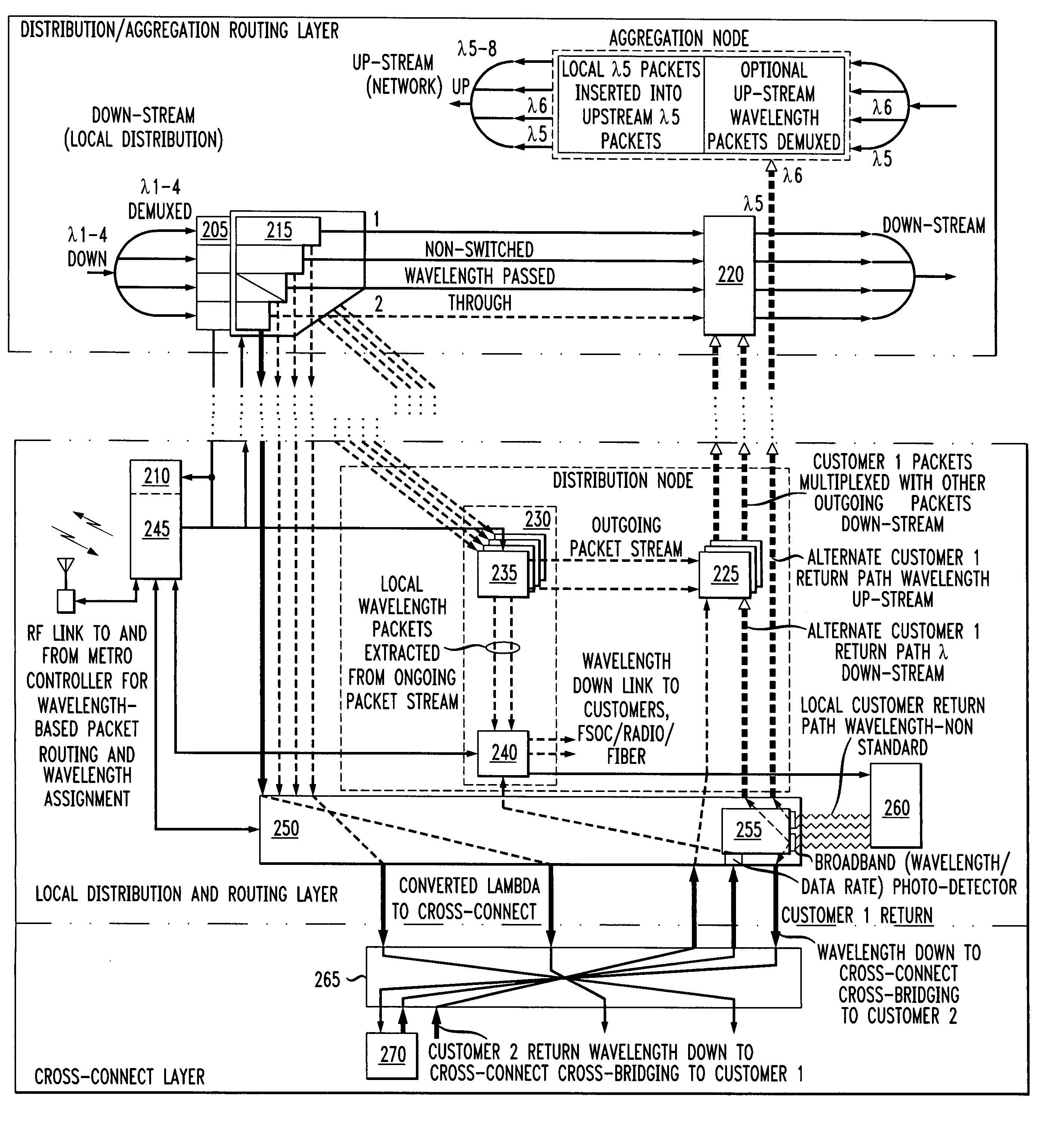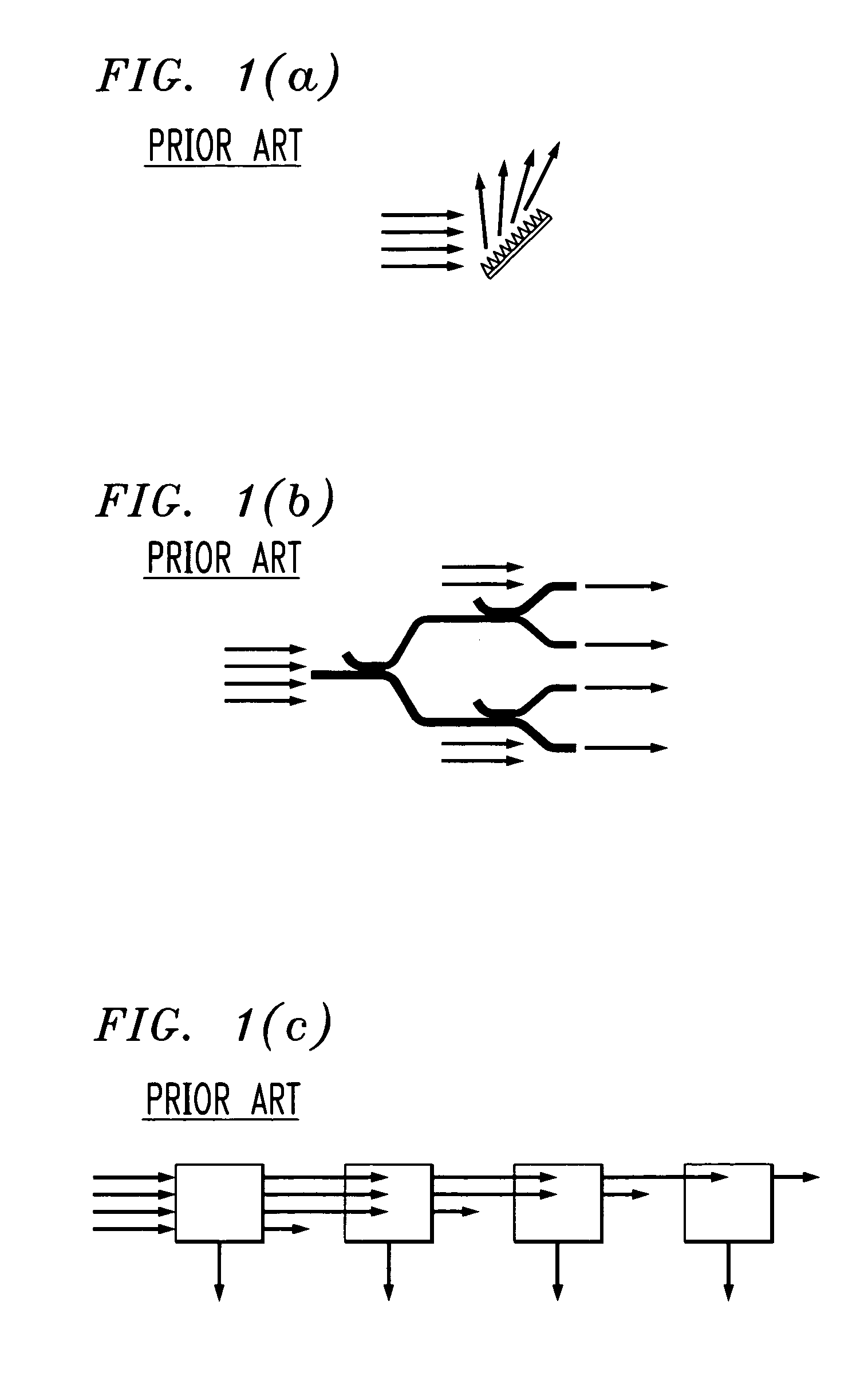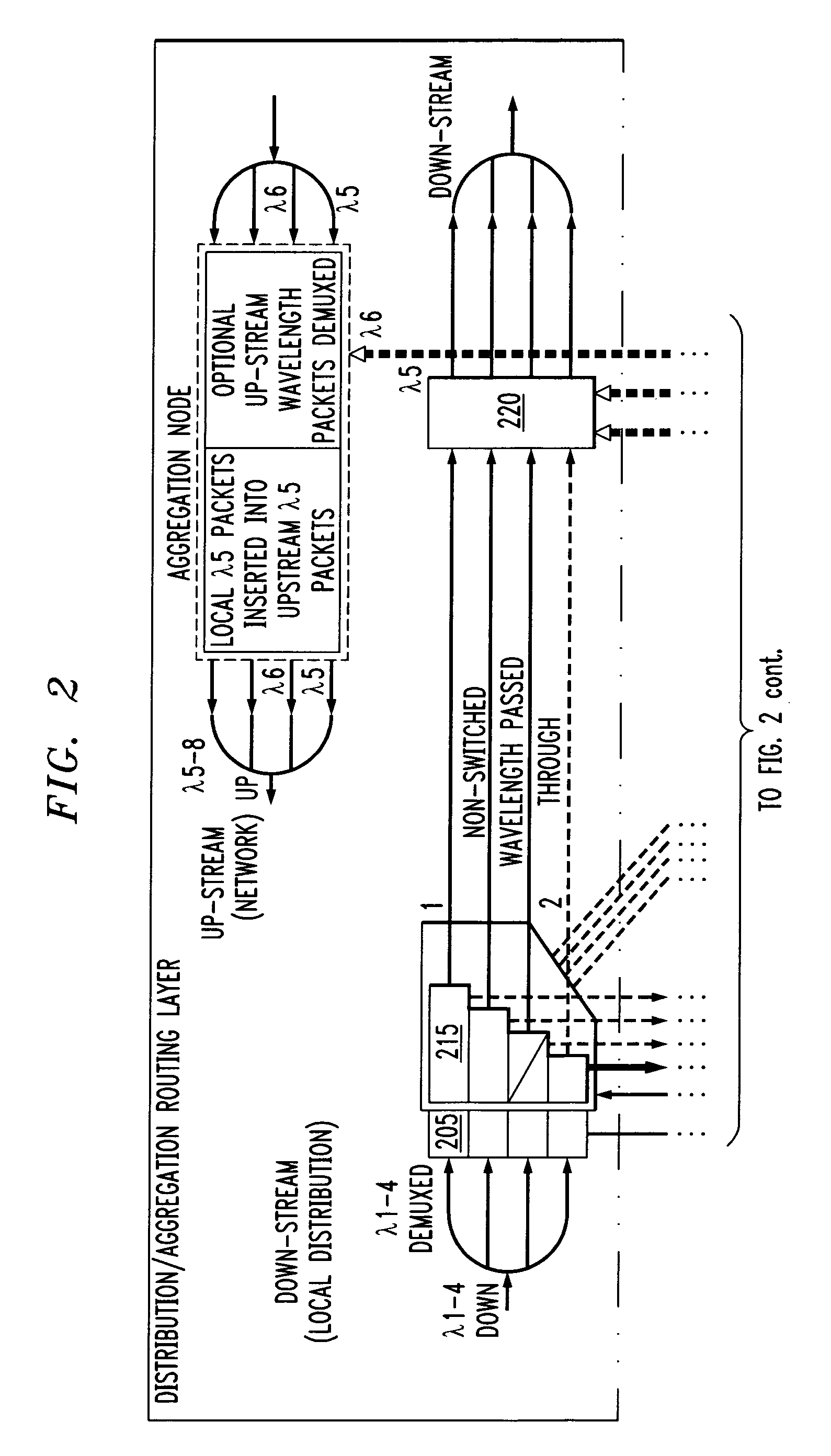Metropolitan networks based on fiber and free space access distribution system
- Summary
- Abstract
- Description
- Claims
- Application Information
AI Technical Summary
Benefits of technology
Problems solved by technology
Method used
Image
Examples
Embodiment Construction
[0011]The invention is best described with reference to the detailed description and the following figures, where:
[0012]FIG. 1 depicts several of the known demultiplexing techniques.
[0013]FIG. 2 is a schematic block diagram of an exemplary embodiment of a primary distribution / aggregation node (with wavelength assignment and cross-connect) for the architecture of the present invention.
[0014]FIG. 3 illustrates a local customer distribution layer embodying a serial array of high-speed optical switches or a matrix of electro-holographic switches, controlled via the local node look-up tables and switch controller circuit, intercepting and switching individual packets out of the wavelength packet stream and directing the packets to the dedicated customer port.
[0015]FIG. 4 is a high level branch-to-node-to-branch schematic showing the primary elements utilized in a node-to-node cross connects via packet (wavelength) assignment and routing within the network mesh configuration.
[0016]FIG. 5a...
PUM
 Login to View More
Login to View More Abstract
Description
Claims
Application Information
 Login to View More
Login to View More - R&D
- Intellectual Property
- Life Sciences
- Materials
- Tech Scout
- Unparalleled Data Quality
- Higher Quality Content
- 60% Fewer Hallucinations
Browse by: Latest US Patents, China's latest patents, Technical Efficacy Thesaurus, Application Domain, Technology Topic, Popular Technical Reports.
© 2025 PatSnap. All rights reserved.Legal|Privacy policy|Modern Slavery Act Transparency Statement|Sitemap|About US| Contact US: help@patsnap.com



